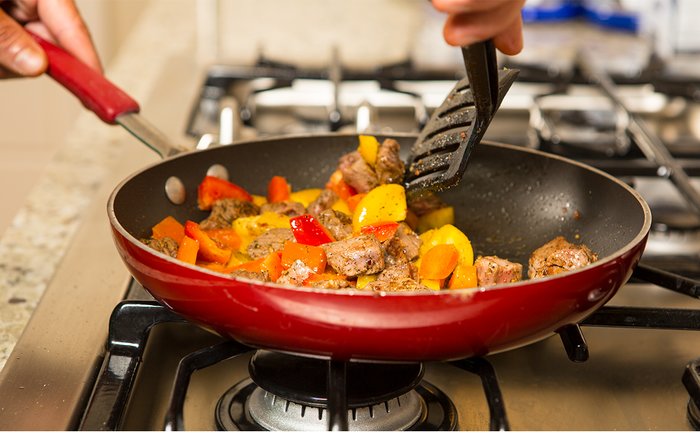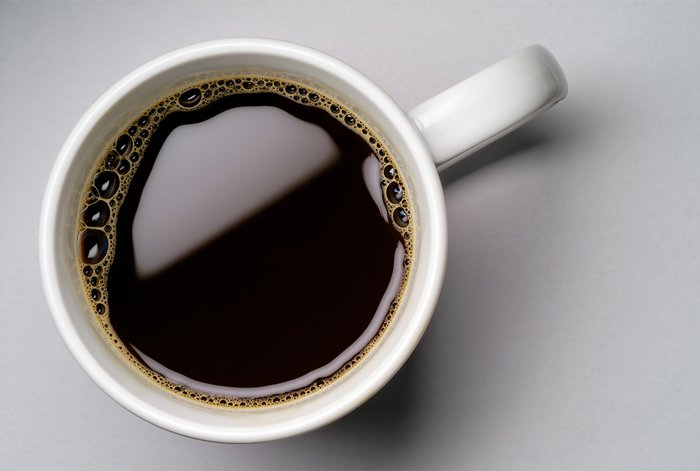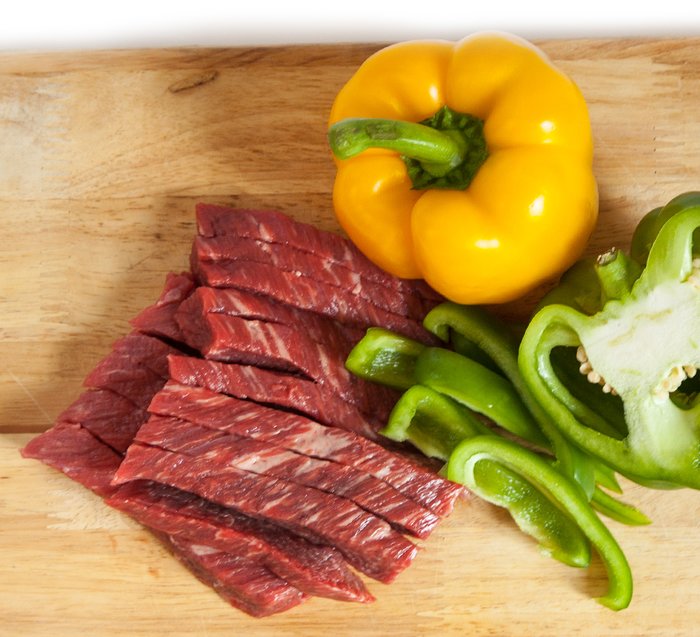Your Ultimate Guide To Iron Supplements
Your body needs the right amount of iron to work correctly. It's especially crucial for athletes, but not everybody gets enough. Should you take an iron supplement? Here's everything you need to know.
What Is Iron And What Does It Do?
Iron is a trace mineral that helps the body transport oxygen through the blood and muscles, create red blood cells, and release energy from cells.
It's the heme in hemoglobin, a compound in red blood cells that carries oxygen from the lungs throughout the body.[1] Iron is also in myoglobin, which moves oxygen into your muscles.
So, having high enough levels of iron is necessary to deliver oxygen to your whole body for energy.
How Much Iron Do You Need?
The Recommended Dietary Allowance (RDA) for adult men (19-50 years old) is 8 milligrams. The RDA for adult women is 18 milligrams per day.[2] This difference is primarily due to monthly blood loss through menstruation in women. For this reason, the RDA for postmenopausal women is reduced to 8 milligrams.
Most people can hit their daily iron requirement by eating a healthy diet full of whole, unprocessed foods.

What Happens If You Don't Get Enough Iron?
Not having enough iron can result in iron-deficiency anemia, which means you have insufficient or damaged red blood cells.
Since iron helps transport oxygen, symptoms of anemia include low energy levels, bad exercise performance, intolerance to cold temperatures, and even a pale, sickly look.
If women don't get enough iron during pregnancy, it can also be dangerous for both the mom and baby.[3,4] Fortunately, doctors are very aware of this and will typically monitor and adjust iron levels throughout pregnancy.
Who Is At Risk For Iron Deficiency?
Iron deficiency is one of the most common deficiencies in the United States, particularly among women.[5,6]
Additionally, heme iron (from meat) is more readily absorbed and utilized than nonheme iron (from plants). So vegans, vegetarians, and others who consume little meat products are also at risk for iron deficiency.
Interestingly, the action of the foot striking the ground is a major cause of damage to or loss of red blood cells.[7] This means that distance runners are also at a high risk for iron deficiency.
Hard physical training in general can increase your number of red blood cells, meaning you need more iron to build them. Iron is also lost through sweat, so the more an athlete sweats, the more they may be at risk for deficiency (although this can be highly variable).
Bodybuilders who are approaching shows often dramatically drop calories while trying to maintain or increase their training volume. Unfortunately, a lot of bodybuilders rely excessively on the staples of chicken, rice, and broccoli.
Aside from the staleness of eating the same thing six times a day, leaving out red meat, coupled with extra training (people often add in cardio), can result in the loss of essential micronutrients, such as iron, from the diet. All athletes and gym-goers need to make sure to get enough iron.

How Can Supplementing Help You—Or Hurt You?
If your iron levels are low, supplementing to bring them up to adequate levels can help protect your health, energy levels, and physical performance. Athletes who are iron deficient will likely see big improvements via supplementation.[8]
But, if you're already consuming enough iron and hoping to get an extra boost from supplements, you're out of luck. The benefits of extra iron intake are only really seen in those who are deficient. If you're already getting enough, you probably won't see a difference.
It doesn't take much excess iron to make you sick, so it is strongly recommended that you consult your doctor to get your levels checked to see if you actually need to supplement iron.[8]
What Are The Side Effects Of Iron Supplements?
The upper limit for iron has been set at 45 milligrams a day.[2] Consuming amounts above this (usually through excessive and inappropriate supplementation) can cause toxicity, involving symptoms such as nausea, diarrhea, dizziness, and vomiting.
Are There Any Dietary Forms Of This Ingredient?
Iron is most readily found in red meat (about 8 milligrams in an 8-ounce serving of steak) and certain seafood such as clams (24 milligrams in a 3-ounce serving) and oysters (10 milligrams in a 3-ounce serving).
Nonheme iron is in plant foods such as legumes, whole grains, and green leafy vegetables. While the bioavailability (how much your body can absorb) of nonheme iron is lower than heme iron, eating both kinds of iron with vitamin C can help you absorb more of it. Think orange juice with your oatmeal, tomatoes in a salad, or a squeeze of lemon on oysters.[9]
If you eat lots of red meat, fish, legumes, whole grains, and green leafy vegetables, you probably get enough iron. Vegetarians have to work a little harder, but it's possible to get adequate levels by eating plant-based iron sources combined with vitamin C.
What Are The Available Forms For This Ingredient?
Most people can fulfill their iron requirement with food. But if a doctor recommends supplementation, you can get it in many multivitamins or on its own as a gel or capsule (both forms are fine). Taking iron on an empty stomach may be best for absorption.
The dose of supplement will be determined based on how deficient you are, your energy needs (how much you're working out), and how much iron you're already getting through your diet.
What Are The Possible Interactions With Iron Supplementation?
Coffee
Coffee may reduce the absorption of iron when you drink it during, or up to an hour after a meal. But, iron absorption is not affected if coffee is consumed one hour before a meal.[8] Have your cup of joe well before your steak dinner to make sure you're in good spirits and iron levels are high!

Dialysis
Erythropoietin, the hormone that signals the production of red blood cells, is made in the kidneys. Those who are on dialysis often have a reduction in kidney function, with anemia being a side effect. Plus, the diets prescribed for dialysis patients, along with some of the related medications, may affect iron absorption, warranting higher intakes.
Medications
There are a lot of medications that affect iron absorption. Some common culprits are:
- Angiotensin converting enzyme (ACE) inhibitors (high blood pressure)
- Prilosec, Zantac (ulcers, heartburn, gastrointestinal distress)
- Antibiotics such as Tetracyclines (Vibramycin, Minocin, and Sumycin) or Quinolones (Cipro, Noroxin, and Levaquin)
Wrap Up
Getting enough iron is non-negotiable for health and athletic performance. But that doesn't necessarily mean you need to supplement. Getting too much can be just as bad.

Eating plenty of leafy greens, meat, fish, legumes, and whole grains should give you enough iron. If you have symptoms of deficiency or are in a high-risk category, see your doctor to get your blood tested for iron.
References
- Beard, J. L., Dawson, H., & Piñero, D. J. (1996). Iron metabolism: a comprehensive review. Nutrition Reviews, 54(10), 295-317.
- Trumbo, P., Yates, A. A., Schlicker, S., & Poos, M. (2001). Dietary reference intakes: Vitamin A, vitamin K, arsenic, boron, chromium, copper, iodine, iron, manganese, molybdenum, nickel, silicon, vanadium, and zinc. Journal of the Academy of Nutrition and Dietetics, 101(3), 294.
- Allen, L. H. (2000). Anemia and iron deficiency: effects on pregnancy outcome. The American Journal of Clinical Nutrition, 71(5), 1280s-1284s.
- Drukker, L., Hants, Y., Farkash, R., Ruchlemer, R., Samueloff, A., & Grisaru‐Granovsky, S. (2015). Iron deficiency anemia at admission for labor and delivery is associated with an increased risk for Cesarean section and adverse maternal and neonatal outcomes. Transfusion, 55(12), 2799-2806.
- Miller, J. L. (2013). Iron deficiency anemia: a common and curable disease. Cold Spring Harbor Perspectives in Medicine, 3(7), a011866.
- Percy, L., Mansour, D., & Fraser, I. (2017). Iron deficiency and iron deficiency anaemia in women. Best Practice & Research Clinical Obstetrics & Gynaecology, 40, 55-67.
- Telford, R. D., Sly, G. J., Hahn, A. G., Cunningham, R. B., Bryant, C., & Smith, J. A. (2003). Footstrike is the major cause of hemolysis during running. Journal of Applied Physiology, 94(1), 38-42.
- Zoller, H., & Vogel, W. (2004). Iron supplementation in athletes—first do no harm. Nutrition, 20(7), 615-619.
- Collings, R., Harvey, L. J., Hooper, L., Hurst, R., Brown, T. J., Ansett, J., ... & Fairweather-Tait, S. J. (2013). The absorption of iron from whole diets: a systematic review. The American Journal of Clinical Nutrition, ajcn-050609.
Comments
Post a Comment